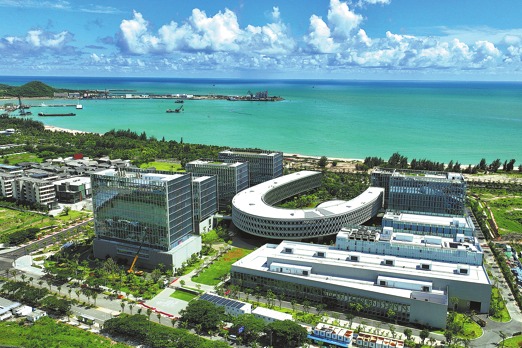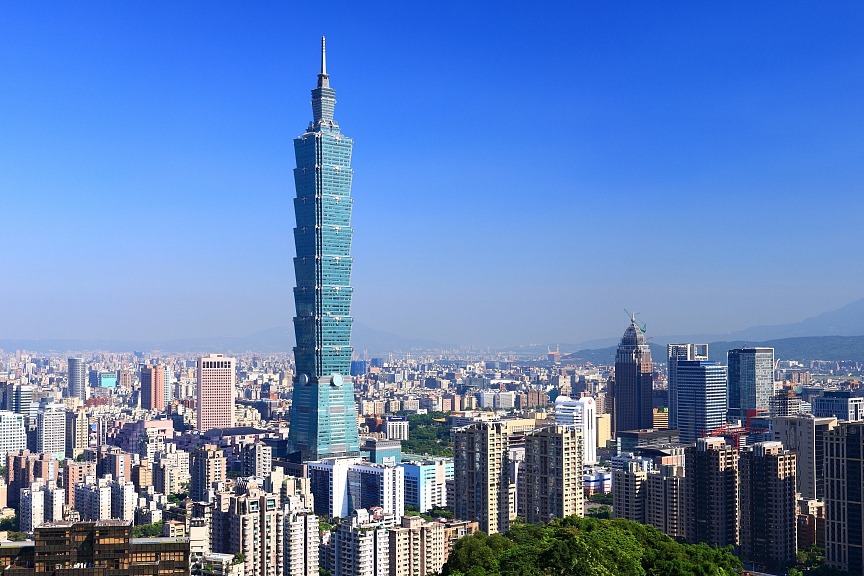Triple whammy


The key to peace, development and prosperity in Northeast Asia lies in cooperation among China, Japan and the ROK
As the United States continues to push for strategic competition with China with the support from Japan and the Republic of Korea, security cooperation in Northeast Asia has stagnated and the region is caught in a security predicament.
First, regional security governance has failed and security cooperation has stalled. Since the suspension of the Six-Party Talks on the nuclear issue of the Democratic People's Republic of Korea, the absence of a comprehensive regional security mechanism has hindered security cooperation in Northeast Asia and made it difficult to effectively coordinate on regional hot-button issues.
The US, adhering to a Cold War mentality of group confrontation and zero-sum games, has strengthened its alliance with Japan and the ROK to contain China, which has disrupted not only the cooperation between China and the US, but also the local security governance environment.
Second, due to a lack of mutual trust, Northeast Asian countries are reluctant to engage in security cooperation. Sino-Japanese and Sino-ROK relations are at a low ebb as a result of the two governments' support for the US' "Indo-Pacific "strategy. Fueled by the government's scaremongering, public opinion toward China in Japan and the ROK has turned increasingly negative, which is unfavorable to improving bilateral relations.
Third, regional security cooperation is fraught with historical conflicts. The rise of the right-wing forces in Japanese politics and the Japanese government's insistence on the wrong narrative of history have made it hard for China and Japan to cooperate.
Improvement in the relations between the ROK and Japan is also affected by Japan's negative stance on issues such as comfort women and historical textbooks. The intertwined historical and present-day issues between China, Japan and the ROK have complicated efforts to undertake effective regional security cooperation.
Fourth, the foundation for security cooperation in Northeast Asia is being challenged. Japan and the ROK have been actively cooperating with the US on export controls targeting China and the "de-risking" of critical products. As a result, the economic foundation of security cooperation among China, Japan and the ROK has been drastically weakened and eroded. The once complementary economic relationships have turned competitive.
Stagnating security cooperation and intensifying great power rivalry have exacerbated the severe and complex security predicament in Northeast Asia.
First, the US, though not a part of Northeast Asia, is continuously exerting influence on the region's security situation. By leveraging the nuclear issue of the DPRK, it has enhanced its military forward presence in Northeast Asia, frequently appearing on the Korean Peninsula and surrounding areas, thereby exacerbating the risk of conflict between the DPRK and the ROK.
The US has been intentionally unleashing and strengthening the military capacity of Japan and the ROK, and drawing more allies into Korean Peninsula affairs to internationalize the situation, with the aim of gaining dominance and the initiative in controlling Northeast Asia, so as to achieve its strategic objectives of maintaining its hegemony, gaining an advantage and outcompeting China.
Through the Camp David US-Japan-ROK Trilateral Summit, the US aimed to expand comprehensive military, economic and supply chain cooperation among the countries, creating a "Southern Triangle".
Under these circumstances, Japan and the ROK, citing perceived threats, continue to upgrade and enhance their military capabilities. Japan has transformed its defense-oriented policy through its three new national security documents and acquired offensive strike capabilities by purchasing US Tomahawk cruise missiles.
The ROK has significantly strengthened its offensive military forces, enhanced its "Three-Axis "defense system, and bolstered its preemptive strike capabilities against the DPRK. The extended deterrence from the US and the ROK, coupled with strong responses from the DPRK, has dragged the Korean Peninsula into a dangerous spiral with rising risks of conflict.
Finally, influenced by the spillover effects of the Russia-Ukraine conflict and heightened awareness of their own security threats, Japan and the ROK have significantly increased their military spending.
According to the latest report from the Stockholm International Peace Research Institute (SIPRI), Japan's military expenditure in 2023 grew by about 7 percent year-on-year to soar to $50.2 billion. A government budget proposal approved by the Japanese Cabinet shows that Japan's defense budget for the fiscal year 2024 is $55.9 billion, a new historical high. The ROK's military spending in 2023 increased by approximately 3 percent to hit $47.9 billion.
The ratio of military expenditures to GDP for Japan and the ROK rose from 0.96 percent and 2.5 percent in 2018 to 1.2 percent and 2.81 percent in 2023, respectively. In terms of arms imports, Japan and the ROK saw astonishing increases of 171 percent and 61 percent, respectively, from 2013 to 2022.
In recent years, Japan has purchased US Tomahawk cruise missiles and upgraded its domestically-produced Type 12 Surface-to-Ship Missiles. The DPRK and the ROK are caught up in military competition with various new types of missiles and military reconnaissance satellites. All these actions can easily impact the entire region and trigger regional security risks.
Facing the uncertainties coming from the changing security landscape and the sharp increase in security risks in Northeast Asia, China, as a responsible major country and an important stakeholder, must play a proactive and constructive role, take practical and effective actions to alleviate regional security predicaments, and promote the construction of a community with a shared future.
First, trilateral cooperation among China, Japan and the ROK should be promoted. Through consultations with Japan and the ROK, efforts should be made to advance a leaders' summit and lay the groundwork for high-level trilateral meetings. Mutual trust should be enhanced, from improving public opinion to promoting recovery of education, science, culture and tourism exchanges through public diplomacy, nongovernment diplomacy, and city diplomacy, so as to gradually enhance institutionalized cooperation among the three countries.
Second, it is important to ensure the overall stability on the Korean Peninsula. China should continue to play an active role in the denuclearization and peace and stability process on the Korean Peninsula. By using its impartial stance to actively engage with all parties, China should continue to promote the "double suspension "and "dual-track" approaches and propose to convene multilateral meetings on the Korean Peninsula situation when opportunities arise.
Third, Sino-US relations should be guided and shaped. China opposes the US defining their bilateral relations as pure competition. The Pacific is vast enough to accommodate the peaceful coexistence of the two countries. But China should stress its redlines so the US understands that China will never tolerate provocations or disturbances at its doorstep. China will not let anyone harm its core interests and is determined to defend its national sovereignty, security and development interests.
Fourth, supply chain diplomacy is advised to promote the construction of a community with a shared future for neighboring countries. In the context of "Indo-Pacific" Economic Framework for Prosperity, the US-led exclusive economic alliance, as well as economic security cooperation among the US, Japan and the ROK, China should leverage the advantage of having the world's largest single market to engage in supply chain diplomacy and conduct economic and trade negotiations with Japan and the ROK.
The author is vice-dean of the Institute of National Development and Security Studies at Jilin University. The author contributed this article to China Watch, a think tank powered by China Daily.
The views do not necessarily reflect those of China Daily.
Contact the editor at editor@chinawatch.cn.


































